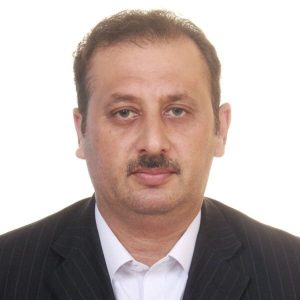Tehkal’s recent incident not only sparked outrage among the people, but also raised serious questions about the professionalism of the KP police and its training in social affairs.
The accused-victim Raziullah alias Amirey Tehkaly in a video, that went viral over social media, abused the high officials of KP police and their families; it was a punishable crime under cyber act. Similarly, the abuser is an Afghan refugee living under Temporary Residence Afghan Card in Pakistan and the law forbids him from any such abuse against the officials of the host country. However, the officials of KP police instead of referring the case to Federal Investigation Agency (FIA) overstepped their authority, took law into their hands and manhandled the accused, the worst part of this episode was stripping off his clothes and circulating his naked video on social media that led to public anger. Khyber Pakhtunkhwa provincial govt took prompt action over the incident, directed Inspector General of Police Dr Sanaullah Abbasi will investigate the matter. IGP KP suspended the alleged policemen and registered FIRs against them besides removing Senior Superintendent of Police Zahoor Babar Afridi from his post and constituting a high powered 3-member committee for inquiry. Peshawar high court also took notice of the incident and asked KP government and police chief to do justice. On demand of the family of victim Chief Minister Mehmood Khan asked for judicial inquiry and wrote letter in this regard to the chief justice Peshawar High Court. After all these necessary steps taken by KP government, Afghan Ambassador to Pakistan visited the house of Amirey to show solidarity; civil society has also criticized the move and government officials calling it against the diplomatic norms. A day earlier, Afghan Consul General also held a meeting with KP Police Chief Dr. Sanaullah Abbasi regarding the issue in Peshawar.
Although such incidents are not novel with our police, especially in Punjab and Sindh provinces. However, Imran Khan-led PTI government tried its best to change old police culture in KP when the party formed government in the province in 2013. Imran Khan called KP Police “Misali Police” (Ideal Police) and PTI used KP police public image as a tool to win public support during 2018 general elections.
It is an established fact that KP police is better in various aspects when we draw its comparison with police of other provinces. KP police has performed exceptionally well in war against terrorism, moreover, they are also known for its integrity and honesty.
It is fact that main architect who transformed KP police into a modern force was the former IGP Khyber Pakhtunkhwa Nasir Khan Durrani. During an interview he shared with me that when he was offered IG KP post in 2013, he accepted the post on condition of zero interference from political government.
Nasir Khan Durrani introduced prolific reforms in KP police, one of the most notable reforms was taking strict action against officers accused of negligence in their duties. He removed numerous officers from service on account of misconduct. He also carried out overall structural reforms in KP police in order to improve the standard of investigation and training.
According to data issued by KP Police in 2015, 4,934 police officials were either removed from their jobs or were punished on disciplinary grounds. IGP Durrani also introduced a Police Access System to address public complaints within the shortest possible time. He established the I-Call system, ensuring round-the-clock direct link between himself and the public. Durrani introduced Special Combat Unit, Rapid Response Force and Woman Commandos in order to overall improve operational efficiency of the force. Other Durrani achievements includes establishing six police academies for specialized skills like handling explosives, introducing Public Information Network to gather intelligence on crimes and militancy, weeding out police corruption, setting up police-civilian partnerships like dispute resolution councils (DPC) and model reporting rooms. In short, under Durrani, KP police earned the trust of the public.
There were reservations among senior police officers regarding IGP Nasir Durrani’s massive actions against police officials on public complaints citing it demoralizing for police force. However, Durrani did not pay any heed and continued his reforms. A police officer on condition of anonymity said that Durrani did things in haste and without proper homework, which proved only superficial or cosmetic. He said although IGP Durrani established school of riots/mob control, but mobs or riots could not be controlled professionally in KP till date. He further said that more than 70 percent of the police officers dismissed on charges of corruption or misuse of authority were later reinstated and that’s why police officials and lower rank officers don’t fear punishment when they go for unlawful acts and misusing their authority.
The reforms and soft image of the KP police started fading the day Nasir Durrani retired in 2017. When asked regarding its reasons, renowned columnist and the incumbent DG NACTA, Mohammad Ali Babakhel said that the successful implementation of a few reform measures led the provincial government to enact the KP Police Ordinance 2016, which was followed by the enactment of the KP Police Act, 2017.
Babakhel, who extensively write over police reforms, said the law was passed to make the police service apolitical, operationally autonomous and accountable to civilian oversight.
”Though the 2017 Act provides a framework for all such essentials, their implementation remains selective. Hence, public safety is compromised. Police Order 2002, and Section 13 (3-VI) of Police Act 2017 also provide the ‘internal accountability apparatus’ but under Police Order 2002 this either remained dysfunctional or accountability remained selective,” he further said.
According to Mohammad Ali Babakhel the Chapter 5 of the 2017 Act provides for the composition and functions of the public safety commissions but inherited flaws in the composition of scrutiny committees stalled the process following the inclusion of the Peshawar High Court chief justice and district judges were challenged in the Peshawar High Court and with the KP Ehtesab Commission later dissolved in December 2018.
He said the Section 143 of the KP Police Act 2017 calls for the appointment of an ‘implementation commissioner’. However, the previous implementation commissioner has completed his one-year term, and a new appointment is still pending.
Moreover, Section 47 allows for public-police coordination through the formation of public liaison councils. Under the law, 70 percent of the council members are to be notified from village councils and 30 percent from amongst the notables. Although these councils have been entrusted with numerous functions, including assistance to the police in crime prevention, the maintenance of public order, sharing of information regarding new tenants, misuse of loudspeakers and reporting of hate speech, capacity constraints have limited their output. The discretion of the DPOs regarding the selection of councils also warrants independent monitoring.
For the improvement of present system, Mohammad Ali Babakhel suggests that the present challenges could be dealt effectively by employing honest officers, adopting long-term planning and additional resource allocation. Cosmetic and mere change of faces may not yield the dividends.
According to Mohammad Idrees Khan, DIG police and renowned literary personality, the police act could only be partially or selectively implemented as civil bureaucracy resisted it and media reported a tug of war between the IGP and Chief Secretary of the province. Similarly, there were very few officers who completed three years tenure as per the provisions of Police Act 2017, said Mohammad Idrees Khan. He said public safety commission is an important part of the Police Act 2017, but it could not be formed due to certain reasons. Idrees Khan further said the 182 (CRPC) could not be implemented in its letter and spirit which stop registration of fake FIRs. He said the separation of prosecution also created problems. To the question what are the reasons for the rigidness in the behavior of our provincial police, Idrees Khan said that actually KP police was modeled on community policing and historically there was exemplary cooperation between police and public before militancy and terrorism came to this region. With the wave of terrorism, there was bomb blast on daily basis, target killing of the community that totally ruptured our social fabric and created a huge gulf between KP police and public. Therefore, there is a need to reduce this trust deficit between police and public through various reforms. Moreover, police needs to refrain from incidents such as Amirey to overall improve its image.





